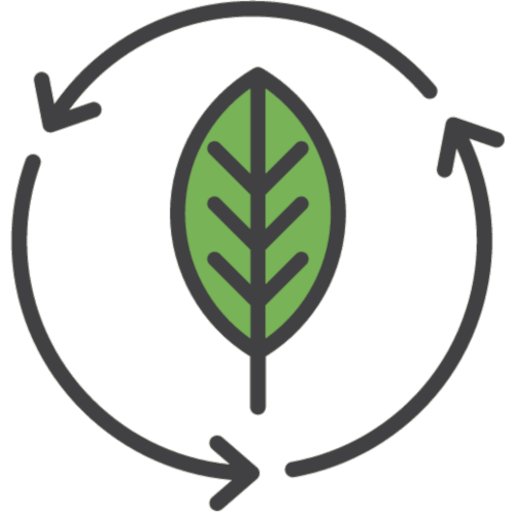We delve into the advantages, disadvantages, and best practices for getting the most out of your caffeine intake before a run.
Stretch out your muscles, loosen up, and finish off the cup of coffee. Some runners consider drinking coffee before a run to be an indispensable component of their regimen, a custom that is so ingrained in the standard procedure that an exercise session just wouldn’t be the same without it.
If This Describes You, We Have Some Great News for You
Consuming coffee before going for a run has been shown to provide improved performance, including a reduction in fatigue as well as a reduction in the feeling of exertion. However, it is not a one-size-fits-all solution. It is possible that chugging a quadruple shot of espresso before hitting the country roads will be more detrimental than beneficial, we guess it depends on the amount of coffee you drink and how sensitive you are to the effects of caffeine.
Amity Lui, a certified dietitian who collaborates with runners, reports that her clients frequently inquire about consuming coffee before running, posing questions such as: “Should I be consuming coffee? How many cups of coffee should I have each day? How much is considered excessive? When should I have it to drink?”
This article is where she assists in answering those questions by speaking on everything you need to understand about caffeine before running. This includes the benefits, the disadvantages, and the guidance of a professional on how to incorporate this into your schedule.
The Advantages of Drinking Coffee Before Going for a Run

Caffeinated coffee is necessary for the majority of coffee’s advantages to be realized before running. “Caffeine is a lawful ergogenic support,” explains Lui. Based on the findings of the research, this indicates that it may improve your performance.
According to the findings of a study that was printed in the International Journal of Sports Nutrition and Exercise Metabolism, consumption of caffeine before endurance running has been shown to reduce the sensations of fatigue, effort, and pain while simultaneously increasing attentiveness and vigilance.
Based on a paper that was published in 2021 by the International Society of Sports Nutrition, the impacts of caffeine consumption appear to continuously offer moderate-to-large advantages for aerobic endurance events. According to the study, individuals who regularly consume caffeine may experience “small to moderate benefits” in a variety of different sporting activities, including sprinters, muscle endurance, and muscle development.
Another Side Effect of Drinking Coffee is That It May Cause You to Defecate
According to Lui, both decaffeinated and caffeinated coffee can stimulate an instinct that leads to bowel movements. She claims that depending on the circumstances, this can either be an advantage or a disadvantage of coffee. For instance, if you are attempting to defecate before you leave your house (and the convenience of a toilet that is close by), then coffee may be of assistance to you. However, if you down a cup of coffee and begin running before you’ve gone to the bathroom, things could rapidly go in the wrong direction.
According to Rachel Gargano, MS, RD, CSSD, a certified dietitian who focuses on sports nutrition with Top Nutrient Coaching, one more advantage of coffee is that it contains antioxidants. Antioxidants are beneficial for anyone to ingest, particularly athletes, because antioxidants work to decrease the body’s inflammatory reaction to exercise.
The Drawbacks of Drinking Coffee Before You Go Running
It’s not always the case that more is better. According to Lui, based on how tolerant you are to caffeine, consuming an excessive amount of it can raise your risk of anxiousness as well as heart rate irregularities, while also reducing your capability to perform fine motor movements. She goes on to say that you might also start perspiring, get sweaty hands, and feel twitchy. Additionally, as was previously mentioned, coffee is known to induce the need to use the restroom, which may be an inconvenience in certain settings.
In addition, consuming a large amount of caffeine later in the day can make it difficult for you to fall or stay asleep. According to Lui, this is due to the fact that caffeine has a half-life of approximately five hours on average. This means that it takes approximately five hours for your body to eliminate half of the quantity of caffeine that you have consumed. Consider the following scenario: at three in the afternoon, before going for a run, you consume a cup of coffee containing 200 mg of caffeine. At eight o’clock in the evening, your body will still have 100 mg of caffeine in it. Based on how susceptible you are to the effects of caffeine, you may have trouble falling asleep or remaining asleep later that night.
How to Evaluate When and How Much Coffee to Consume Before a Run
A person’s tolerance for caffeine is determined by a number of factors, including their genetic factors, how long they have been ingesting caffeine, and how much caffeine they typically consume daily, there is no standard amount that can be recommended for everyone.
In light of this, Lui and Gargano suggest consuming between 3 to 6 mg of caffeine for every kilogram (kg) of body weight in order to achieve optimal performance. That comes out to approximately 200 to 400 milligrams for an athlete who weighs 68 kilograms, which is roughly equivalent to approximately 2 to 5 cups of coffee.
According to Gargano, if you are sensitive to caffeine, you should probably stick to the lower end of that spectrum when determining how much caffeine to consume. She goes on to say that “if you’re currently taking in a reasonable quantity of caffeine daily, then you possibly need a larger dose in order for it to be effective.”
Take Into Consideration What Lui Has to Say
“There is a thing as too much caffeine,” she says. In accordance with the Food and Drug Administration (FDA), which cautions that excessive consumption of caffeine can result in problems that include digestive problems, sleeplessness, increased anxiety, and rapid heart rate, among other troubling side effects, you may want to consider limiting your daily caffeine intake to 400 mg or less. According to the Food and Drug Administration (FDA), seizures are one of the adverse effects that can result from rapidly consuming a large quantity of caffeine (about 1,200 milligrams is a good benchmark to use).
If you find that you are acutely vulnerable to caffeine in a bad way, Gargano does not advise including coffee as a component of your running routine. This is because the potential drawbacks are likely to outweigh any possible benefits.
However, if you are someone who handles caffeine well, then the general guideline is to consume it anywhere from 30 to 60 minutes before you start your run. Scheduling your pre-run coffee intake so that you receive “that little boost when you need it the most.” Although the effects of caffeine can be felt as early as 15 minutes after ingestion, its full impact does not peak until approximately one hour afterward.
If you are the type of person who likes to sweeten their coffee with a significant amount of real sugar before a run, you might want to drink it closer to the start of your race, within about 30 minutes. This is due to the fact that “sugar is going to penetrate the system fairly fast,” and in order to reap the benefits of high sugar levels, which are advantageous for when you are trying to exercise, you will want to consume the sugary substance “a little closer” to the beginning of your workout.
According to Gargano, it is possible that you will need to consume caffeine while you are running for a long distance (more than two hours), so keep this in mind. If this is the case, you will most likely decide to go with a caffeinated chew or gel.
In Conclusion
Although consuming coffee before going for a run has several potential benefits, including enhanced alertness as well as diminished feelings of fatigue, pain, and exertion, these advantages do not apply to all runners. It takes some trial and error to find out how much coffee, if any, should be a component of your pre-run ritual, as well as how much you should take and when it should be taken for it to be most effective for you.
No matter when or how you drink your coffee, both sets of experts agree that the best way to guarantee you have the necessary amount of energy to perform well during your workout is to combine it with some kind of food. Coffee doesn’t provide its drinkers with energy on its own because it is not a calorie-based food.
Within the first half hour to an hour and a half of a run, it is highly recommended to consume a carbohydrate snack that is simple and easy to metabolize. Those who have difficulties digesting solid foods before exercise should consume applesauce, a banana with peanut butter, a slice of toast with a banana, and honey before going for a run.





